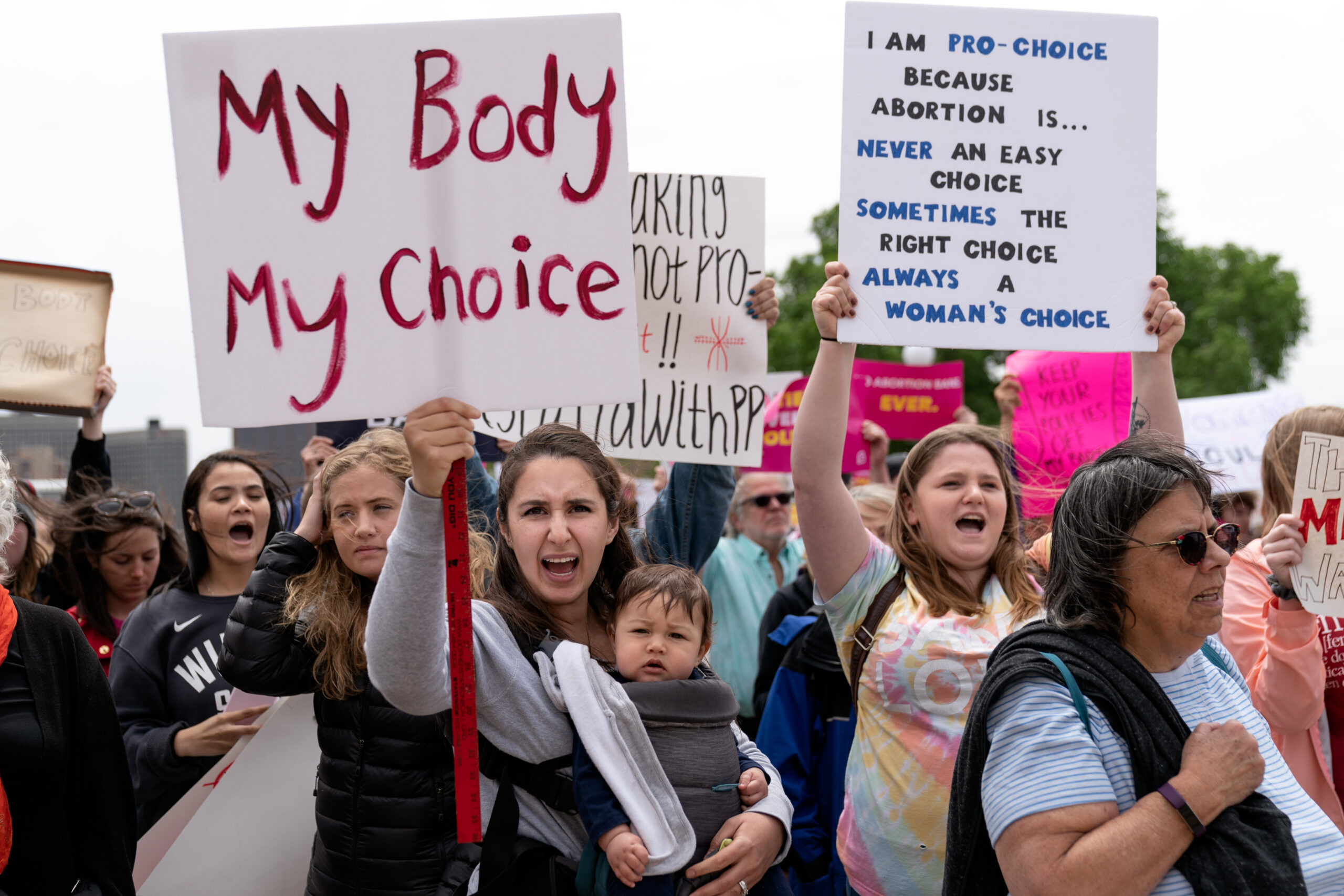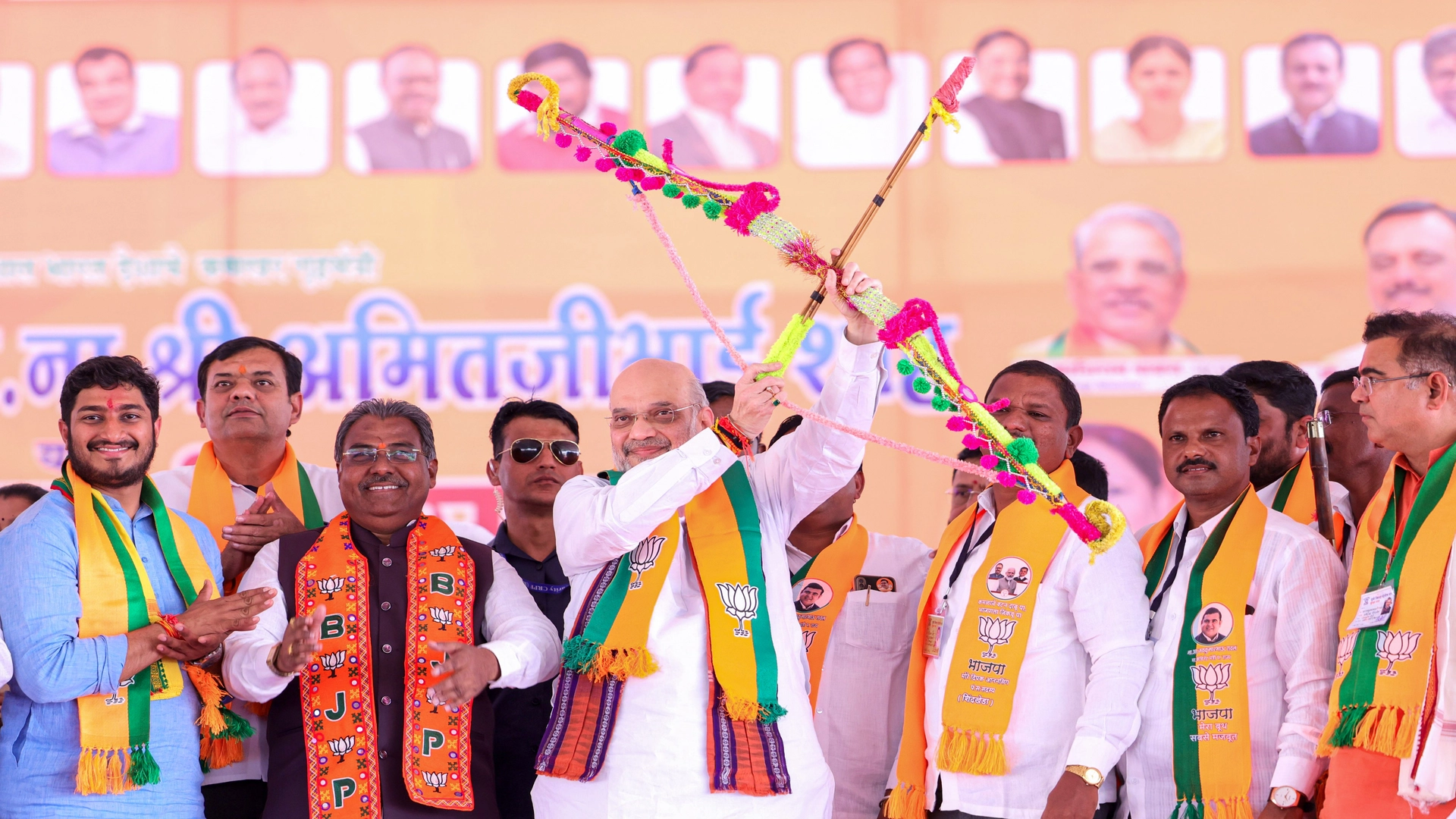
We must ask ourselves whether we are genuinely free from all societal constraints, or some aspects of our lives are still controlled by other members of society.
No woman can call herself free if she does not own and control her body. No woman can call herself free until she can choose consciously whether she will or will not be a mother—Margerat Sanger
In recent times, France has achieved a historic milestone by recognising women’s right to abortion as a fundamental right under its constitution. This groundbreaking decision holds significance not only for the nation but for women globally, symbolising crucial freedom and formal acknowledgment of women’s autonomy over their bodies. The recognition of abortion as an essential right mark a positive step forward for women’s reproductive rights, emphasising the need to grant them control and agency in decisions concerning their reproductive health. President Emmanuel Macron takes pride in this decision, and it stands as a triumph for supporters of feminist ideals, reinforcing a broader commitment to gender equality and women’s autonomy.
Forced motherhood results in bringing miserable children into the world… It must be pointed out that the same society so determined to defend the rights of the foetus shows no interest in children after they are born—Simone de Beauvoir
Simone de Beauvoir, a prominent supporter of the feminist movement for abortion rights, expressed a powerful observation reflecting the challenges faced by women. Her statement underscores the contradiction in a society that vigorously defends the rights of the foetus by restricting women’s access to abortion, purportedly for the protection of the unborn child. However, this concern appears to diminish once the child is born, with insufficient attention paid to their well-being or the struggles experienced by the mother. De Beauvoir’s words highlight the need for a more comprehensive and consistent approach to women’s reproductive rights, encompassing both the prenatal and postnatal stages of motherhood.
The issue of abortion rights has been a subject of political, religious, and legal debates globally, with discussions often framed from a societal perspective. However, what many fail to grasp is that abortion rights extend beyond a mere legal entitlement; they represent a fundamental freedom for women. The right to abortion is fundamentally about a woman’s autonomy over her reproductive choices, granting her the freedom to decide when to have children and when not to. Recognising this aspect is crucial for a comprehensive understanding of the importance of abortion rights in fostering women’s autonomy and bodily autonomy.
The landscape of abortion rights in the United States has seen shifts and challenges over time. Although the Roe v. Wade case initially recognised the right to abortion in the early 1970s, recent developments in 2022 have raised questions about the continued politicisation and religious influence on women’s reproductive choices. The reversal of restrictions on abortion rights can be seen as a setback, prompting reflection on whether women’s bodies are still subject to political and religious control. This poses challenges to the progress made by the feminist movement, historically involving collaboration between black and white women in the U.S. advocating for reproductive control.
The struggle for reproductive rights persists as an ongoing societal and legal challenge, emphasising the importance of continued advocacy and dialogue to address the complexities surrounding women’s autonomy and the right to make decisions about their own bodies.
Abortion, as a method of birth control, has deep historical roots in nearly every society. Unimpeded access to birth control, family planning, and the right to terminate a pregnancy are fundamental aspects of reproductive rights. Nevertheless, this issue remains contentious, entwined with moral, social, and religious considerations. The struggle for women’s reproductive rights spans centuries, with some individuals having successfully secured these rights after prolonged battles, while others, notably women in India, continue their quest for full recognition.
In India, the judiciary has recognised a woman’s right to choose abortion under the Medical Termination of Pregnancy (MTP) Act of 1971. However, a closer examination of the legislation reveals that the MTP Act does not entirely endorse unrestricted abortion access. Instead, it provides for conditional rights, wherein the decision to perform an abortion relies on the conscience of the attending physician. Section 3 of the MTP Act outlines the circumstances under which a doctor may perform an abortion on a woman. In India, abortion is not an absolute choice for women; rather, it is subject to specific conditions and restrictions.
During a symposium titled “Reproductive Rights in Indian Courts: Celebrating Progress, Identifying Challenges, and Discussing the Way Forward,” Supreme Court Judge AK Sikri expressed concerns about the limited options for women in this country regarding reproductive rights. He pondered the collective failure of humanity to address these issues, emphasising that reproductive rights, inherently human rights grounded in human dignity, are often intertwined with women’s sexual rights. In the context of India, Sikri pointed out the influence of the husband, family, and societal norms in decisions regarding childbirth, including the desired gender of the child. He emphasised that a woman’s decisions about reproduction, be it conception, abortion, or contraception, directly involve her body. He stressed that, considering her anatomy, it is ultimately her body and her right, and the decision must be hers to make.
These words of Supreme Court Judge AK Sikri provide valuable insight into the challenges faced by Indian women regarding abortion rights. His observations underscore the societal complexities and deep-rooted attitudes that continue to influence discussions around reproductive choices. Despite technological advancements, societal mindsets often lag behind, making it difficult for open and constructive dialogues on women’s reproductive rights to take place. The recognition of this gap between technological progress and cultural attitudes highlights the need for not only legal reforms but also comprehensive efforts to change societal perceptions and foster a more supportive environment for women to exercise their reproductive rights freely and without stigma. Acknowledging the challenges is the first step towards addressing them and working towards a more inclusive and progressive approach to women’s health and rights.
I firmly believe it’s high time for all the women to be granted abortion rights as fundamental rights because our bodies are our own, and the choice should be ours to decide when to have a child and when not to. While we celebrate International Women’s Day every year on March 8th, it prompts us to question the reality of our empowerment. We must honestly ask ourselves whether we are genuinely free from all societal constraints and challenges, or if, in reality, some aspects of our lives are still controlled by other members of society.
Dr. Pyali Chatterjee is Head of the Department, Faculty of Law, ICFAI University, Raipur Chhattisgarh














